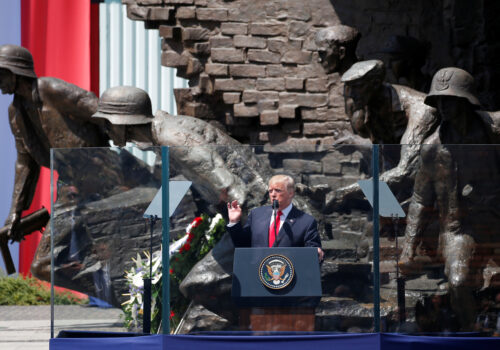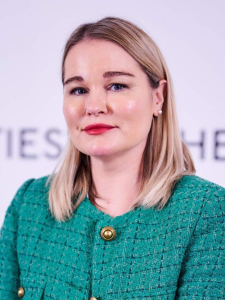After more than one hundred days, Russia’s war on Ukraine continues with intense fighting over key objectives, with strategic gains on both sides. While Ukrainian forces have successfully defeated Moscow’s offensive in the north and even drove invaders away from the key city of Kharkiv, Russian forces regrouping in the Donbas are making incremental gains. With intense fighting for the strategic city of Severodonetsk, Russia is employing its natural advantages in superior artillery, air power, missiles, and armor to utilize the more open terrain in Ukraine’s east.
While the outcome of the war hangs in the balance, the United States and Western allies recently decided to deliver longer range artillery and rocket launchers in limited quantities, with ranges of no more than 80 kilometers, to help Ukraine start closing the gap in long-range strike capabilities. Despite these new deliveries, Russian President Vladimir Putin continues to bank on the assumption that Ukraine’s friends don’t have the stamina to maintain pressure on Russia and support for the Ukrainian people.
Do suggestions from some Western leaders of territorial concessions to Russia in exchange for a quicker peace play into Putin’s gamble? After more than three months, what has been the extent of Western support for Ukraine, and what more does Ukraine need to win? How would a Ukrainian victory be in the interest of Western powers?
Ambassador John Herbst, senior director of the Atlantic Council’s Eurasia Center, moderates a conversation with Gen. (Ret.) Philip Breedlove, former Supreme Allied Commander Europe, Dr. Eric S. Edelman, former Under Secretary of Defense for Policy, Ambassador Daniel Fried, Weiser Family Distinguished Fellow at the Atlantic Council, and Ivanna Klympush-Tsintsadze, member of the Verkhovna Rada of Ukraine and chair of the parliamentary committee on the integration of Ukraine into the European Union on what’s next for the war in Ukraine.
This event will not feature an in-person audience. You will be able to join via desktop or mobile app, through your web browser, or by phone. To join the question and answer period, you must join by app or web.
Register below for details on joining the virtual audience.
Follow us on social media
and support our work
issue spotlight

Europe in crisis
War in Ukraine
Experts from across the Atlantic Council are assessing the consequences of Russia’s February 2022 invasion, including what it means for Ukraine’s sovereignty, Europe’s security, and the United States’ leadership.




